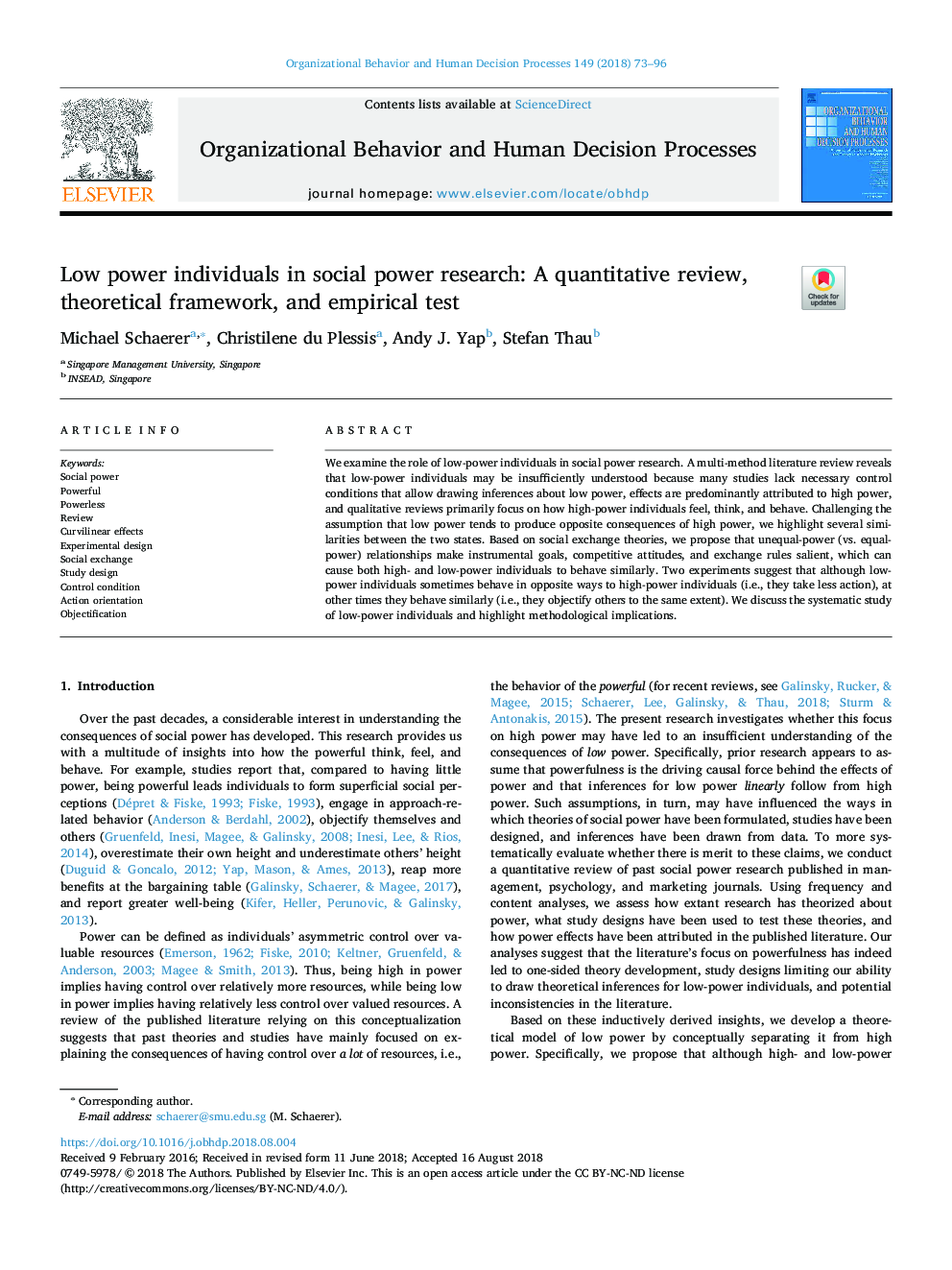| Article ID | Journal | Published Year | Pages | File Type |
|---|---|---|---|---|
| 11029818 | Organizational Behavior and Human Decision Processes | 2018 | 24 Pages |
Abstract
We examine the role of low-power individuals in social power research. A multi-method literature review reveals that low-power individuals may be insufficiently understood because many studies lack necessary control conditions that allow drawing inferences about low power, effects are predominantly attributed to high power, and qualitative reviews primarily focus on how high-power individuals feel, think, and behave. Challenging the assumption that low power tends to produce opposite consequences of high power, we highlight several similarities between the two states. Based on social exchange theories, we propose that unequal-power (vs. equal-power) relationships make instrumental goals, competitive attitudes, and exchange rules salient, which can cause both high- and low-power individuals to behave similarly. Two experiments suggest that although low-power individuals sometimes behave in opposite ways to high-power individuals (i.e., they take less action), at other times they behave similarly (i.e., they objectify others to the same extent). We discuss the systematic study of low-power individuals and highlight methodological implications.
Keywords
Related Topics
Social Sciences and Humanities
Business, Management and Accounting
Marketing
Authors
Michael Schaerer, Christilene du Plessis, Andy J. Yap, Stefan Thau,
